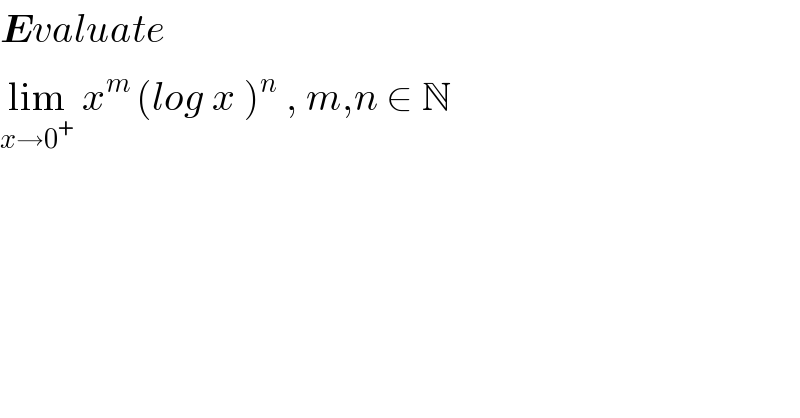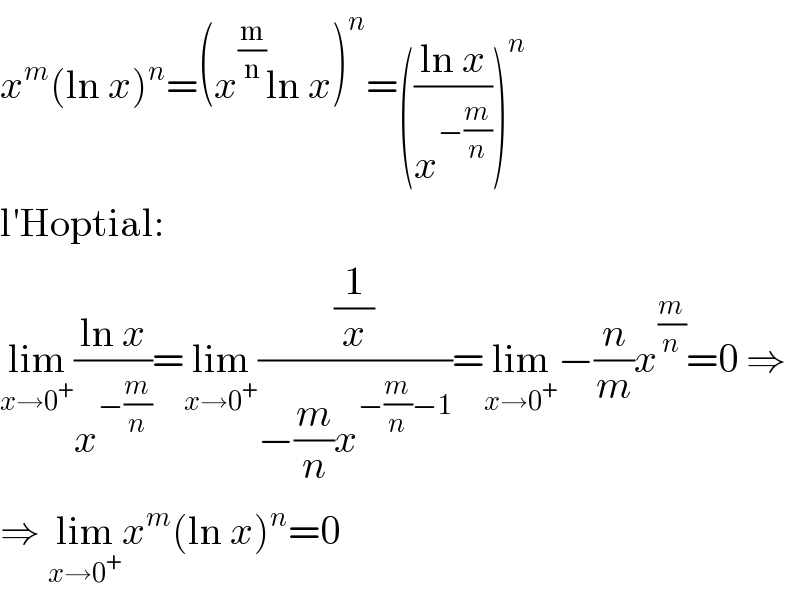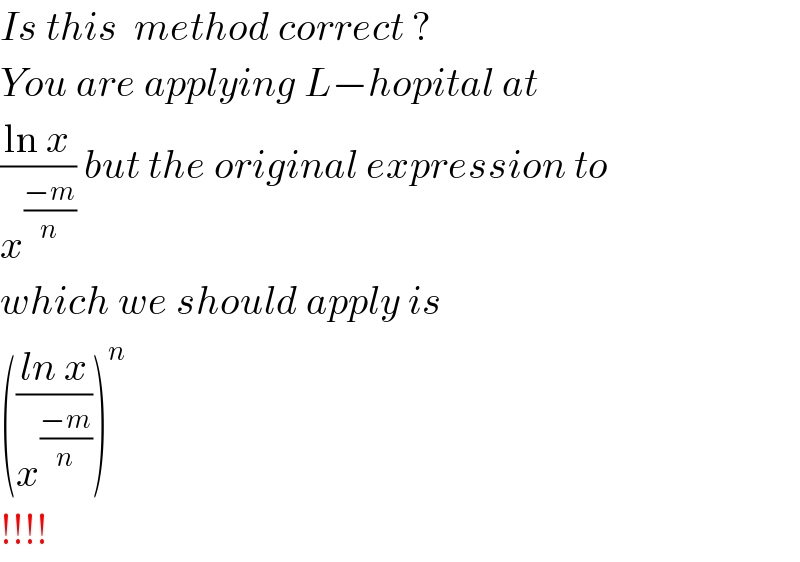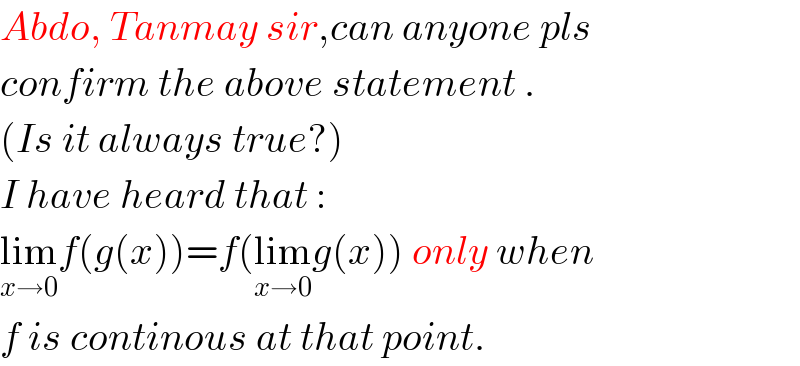
Question and Answers Forum
Question Number 34464 by rahul 19 last updated on 06/May/18

Answered by MJS last updated on 07/May/18

Commented by rahul 19 last updated on 07/May/18

Commented by MJS last updated on 07/May/18

Commented by rahul 19 last updated on 07/May/18

Commented by math khazana by abdo last updated on 08/May/18

